Do you have a little one who is eager to learn and likes technology? Apps can improve skills in fine motor skills, reading, phonics, maths, problem-solving and more. Research suggests that after age two, children may benefit from some types of screen time, such as programming with music, movement and stories. We’ve compiled a list of what we think are some of the best educational apps for children aged three to five years.
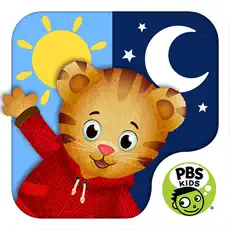
Pre-school aged children can learn about morning and bedtime routines with PBS KIDS’ Daniel Tiger. Help Daniel Tiger get ready for school in the morning and for bed at night through imaginative play and songs.
We like it because there are sing-along songs that make routines fun and a musical timer to keep routines such as teeth-brushing on track.
Pros: Simple, age-appropriate for toddlers.
Cons: There’s no order required for following the routines, and it’s limited to morning and evening routines only.
Available on the App store and Google Play
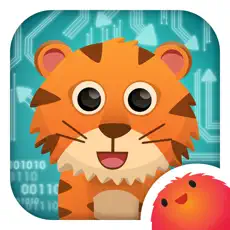
Pre-coding logic game for kids
Why? We think introducing children to coding early is gives children a head start in learning how to code with Hopster Coding Safari. This animal themed pre-coding logic game to help little ones learn the fundamentals of coding. Children are presented with a series of logic problems to solve, getting different animals to where they need to be.
Children learn: The fundamentals of computational thinking
This game will engage young children in computational thinking – the fundamental techniques needed to understand coding – without them realising they are learning!
Pros: Wide range of activities, links to early years learning objectives.
Cons: Paid subscription based and not a lot offered without paying.
Available on the App store
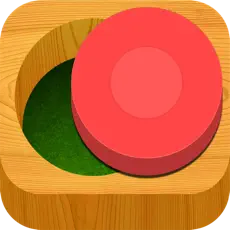
Shape-sorting puzzles great for fine motor skill development
What makes Busy Shapes so clever is the way the puzzles gently gets more challenging, motivating little ones to find solutions to each puzzle through experimentation. From shape-changing to colour-mixing to hidden holes, we’re impressed with how the game spurs out-of-the-box thinking, stimulating curious young minds. The app’s designers say it’s inspired by the pioneering works of child theorist Jean Piaget (1896-1980), who believed that “children are little scientists” and that a child’s thoughts are built through experiences that encourage him or her to engage in the reasoning process.
Pros: Free version includes a lot of activities. The challenge increases, with multiple objects and holes of different shapes, moving objects, obstacles to get around or to move, and finally the need to use tools to move the objects. There’s no direction and no help. Children must explore and discover on their own how to get the objects into the holes.
Cons: Doesn’t seem to be a way to get to earlier levels.
Available on the App store and Google Play
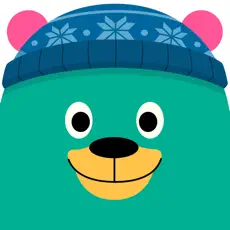
Khan Academy Kids is a free, fun, educational program with thousands of activities and books that will inspire a lifetime of learning and discovery for children ages two+.
The app is designed by experts in early childhood education to guide young learners on a delightful journey through key skills in maths, reading, phonics, writing, social-emotional development, and more. It includes thousands of lessons, activities, books, and games that are age-appropriate for preschool through year two. With catchy songs and yoga videos, little ones will also have fun moving, dancing, and getting the wiggles out.
Pros: The variety of learning topics and the creative approach to activities offer breadth and depth without it feeling overwhelming.
Cons: Animations could use more captioning; written instruction and language options.
Available on the App store and Google Play
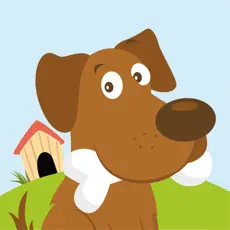
This app aims to strengthen children’s cognitive skills, concentration and memory with activities such as tracing letters, spelling with an A-Z of animals, counting, jigsaw puzzles, spot the difference, pet salon, feed the animals and more. Your toddler will really enjoy playing this game as every little action has been thoughtfully designed for an effortless gameplay.
Pros: Fun cheerful characters, good for young learners working on fine motor skills, problem-solving skills, spelling, and language acquisition.
Cons: Limited activities and full screen ads in free version, some complaints about price of full version.
Available on the App Store
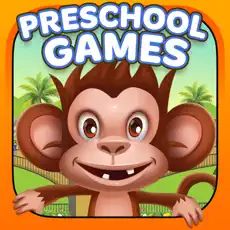
This app for toddlers has more than 1000+ fun and educational activities and games! This delightfully interactive smart app helps children learn ABCs, numbers, colours, shapes, and more. Children can skip, sing, and dance to popular nursery rhymes with Moolingo the monkey.
Pros: The amount of activities.
Cons: Paid subscription service.
Available on the App Store and Google Play

Thoughtfully-made educational games for children aged two to eight, including early literacy skills using a comprehensive program full of interesting activities, building blocks for maths confidence, and tools for navigating social skills, empathy, and confidence.
Pros: Personalised to children’s interests across subjects, learning grows with child.
Cons: Paid subscription service.
Available on the App Store and Google Play
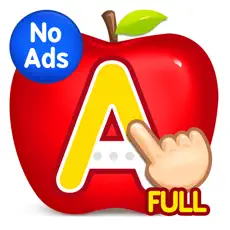
Features letters and word learning games to help children learn basic tracing of alphabet, letters, words and numbers one to 10.
Pros: Full app is free.
Cons: Some complaints on sound issues.
Available on the App Store and Google Play
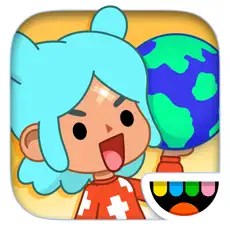
The Toca Boca suite of apps for children is an interactive way to explore the world by cooking, cutting hair, building a neighborhood, and taking care of pets. For the youngest users, try a role-playing app like Toca Doctor or a simple app like hairstyling (children love the hairdryer!). And as they grow, children can design and build their own city with the Toca Life apps.
Pros: Dozens of games to choose, including some free, and ome games can be purchased as a bundle for discounted pricing. Variety of games for beginners, animal lovers, budding engineers, and more.
Cons: Not all apps will be of interest to all.
Available on the App Store and Google Play
Related:
The decision to enrol children in a reputable, high-quality childcare environment is no longer just to do with the working life of their parents. Increasingly, it’s become an active choice for fostering child development, socialisation and the gathering of real-world practical skills that will positively impact a child’s future academic pathways.
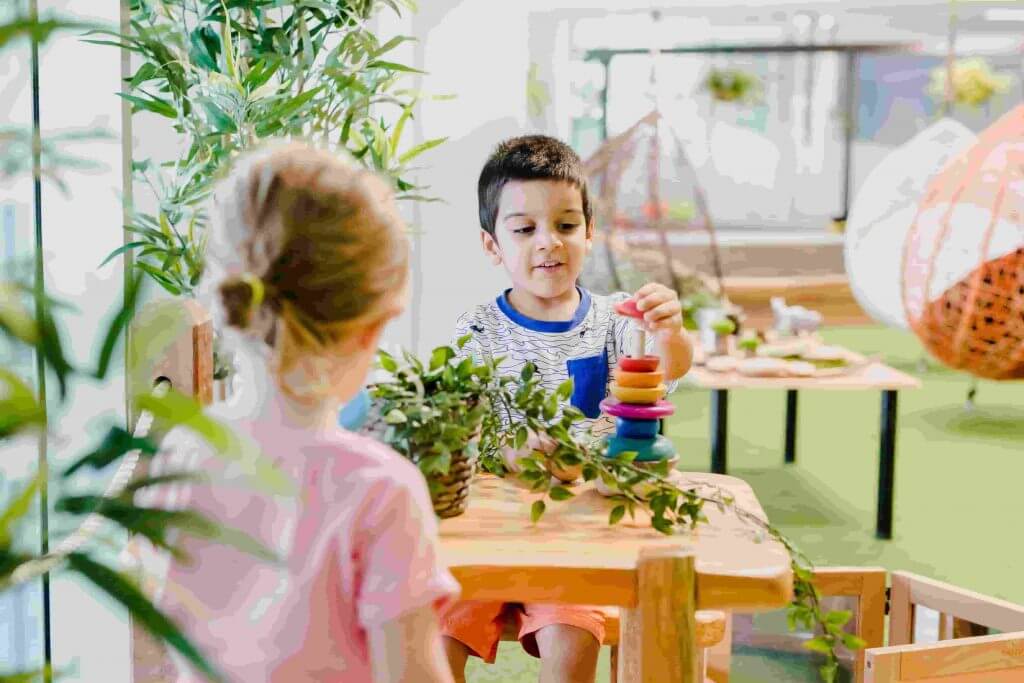
Good early learning and pre-school programs encourage babies and toddlers to become active participants in the world around them. A kindergarten program school transition that follows a set of academic standards, supported by carefully chosen resources and highly-trained staff, has statistically demonstrated increased levels of numeracy and literacy by the time children reach formal schooling. Early childhood care that is lovingly and thoughtfully crafted to ensure best possible outcomes for children provides them with a stepping stone into their primary school education (and beyond) that may not be possible if they were taught purely in a home environment.
”{Childcare} offers long-lasting social, economic and academic benefits for kids and their parents. Studies have shown that children, including babies and infants from the ages of 6 months to 4 years, benefit from the {childcare} environment, including its quality instruction, structure and social lessons.”
– 6 Benefits of Daycare for Young Children, The Childcare Advantage.
Not only is child development enhanced by attending childcare but securing children into an excellent childcare and kindergarten environment can also increase the social support network for parents themselves. The ability to speak to, empathise and make connections with like-minded parents not only provides children with weekend play-date opportunities but the parents themselves are given a much-needed social lifeline.
The Raising Children Network offers parents a glimpse at typical child development milestones. As with any resource, these should be read as a guide instead of a prescriptive map of behaviour.
Many of these milestones can be developed at a greater rate by engagement with highly trained childcare professional educators supported by an innovative and exciting early years learning program. Little Scholars prides itself on delivering the utmost care to the young people who attend its centres across South-East Queensland.
Babies will be encouraged to develop their movement, vision, speech and language and social behaviour through a gentle, compassionate early years program.
Toddlers will work on their emotional development under the watchful eye of trained educators. Their speech development, cognitive leaps and play-based learning will be encouraged through a curriculum designed to promote each child’s abilities.
Children embarking on their kindergarten program will be presented with a range of activities, including key extra-curricular involvement, that will allow them to be learners who question and interact with the world around them rather than passive engagement.
If you’d like to know more about how Little Scholars benefits child development and learning, book a tour today to see our unique curriculum in action.
At Little Scholars School of Early Learning, we’re dedicated to shaping bright futures and instilling a lifelong passion for learning. With our strategically located childcare centres in Brisbane and the Gold Coast, we provide tailored educational experiences designed to foster your child’s holistic development.
Let us hold your hand and help looking for a child care centre. Leave your details with us and we’ll be in contact to arrange a time for a ‘Campus Tour’ and we will answer any questions you might have!
"*" indicates required fields